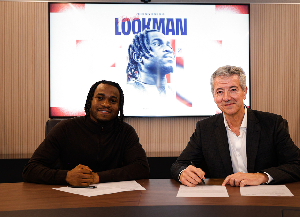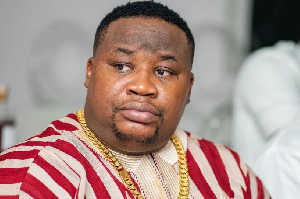Koforidua, July 25, GNA- Senior Media practitioners and leaders of political parties after a three-day retreat in Koforidua on Sunday unanimously acknowleged the media's crucial role in the reduction of political tension and polarization.
They appreciated the role played by the media in national development but noted that it was only when the media operate responsibly that they would impact positively on national discourse, democracy and development. The retreat which was organized by the Institute of Economic Affairs (IEA) was under the theme: 93Reducing Political Tension and Polarization through Responsible Reportage ahead of the 2012 Elections". In a communiqu=E9, the participants accordingly urged the media to wor= k towards accountability and responsible behaviour. They underscored the powerful effect of radio on the population and th= e special difficulties in editing what was broadcast in the course of talk shows and phone-ins. The participants nevertheless acknowledged the role talk shows and phone-ins play in deepening democracy and expanding the frontiers of national discourse but noted the challenges in managing them which had led to the putting out of very divisive information, unsubstantial allegations, plain lies and degrading insults.
They admitted that the capacity and professional integrity of talk show hosts were crucial in directing debate and discussions and emphasized the need for sustained efforts to build the capacity of media practitioners to bring quality and professionalism into their work. Participants identified the winner-takes-all political culture and practice and the lack of social and economic inclusion as currently operating in Ghana as some of the factors which had undermined national cohesion and led to the use of intimidation and subsequent polarization. They equally agreed that it was precisely because serial callers were rewarded by political parties and politicians that they feel no sense of shame in subjecting political opponents to public ridicule, abuse and insults as well as the peddling of lies and naked untruths and urged politicians who sponsor them to put a stop to it. The participants stressed the need for media to move away from pettiness and sensationalism and cooperate with political parties to weed out persons who engage in hate speech, insults and vilification. They affirmed the need for talk show hosts to be knowledgeable and adequately remunerated so as to professionally manage and direct public discourse on their shows and therefore appealed to all stakeholders in the work of the media to support the building of capacity of talk shows hosts through the establishment of a Media Development Fund. They called for the rigid enforcement of the use of delay broadcast equipment to eliminate insults and vulgarity from their stations and expand the base of their panels beyond the National Democratic Congress (NDC) / th= e New Patriotic Party (NPP) dichotomy.
Participants called on media practitioners to abide strictly by the Code of Ethics of the Ghana Journalists Association (GJA) and guidelines of the National Media Commission (NMC) on responsible, ethical and professiona= l journalism practice in the country. They therefore called for the capacity of the NMC to be enhanced and b= e given the teeth to ensure compliance with its directives. Participants agreed on the need for the passage of a broadcasting law, and also called on all media houses to develop and enforce ethics. They called on politicians to do away with unsavory comments, insults and the peddling of falsehoods which only foul the political and social atmosphere. Mr Kabral Blay-Amihere, Chairman of the NMC, Mr Ransford Tetteh, President of the GJA, Mr Johnson Asiedu-Nketia, General Secretary of the NDC, Mr Fred Oware, Vice-chairman of the NPP and Alhaji Ahmed Ramadan, National Chairman of the People's National Convention (PNC) signed the communiqu=E9.
General News of Monday, 25 July 2011
Source: GNA












